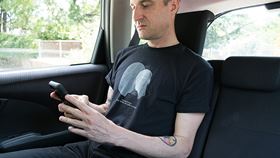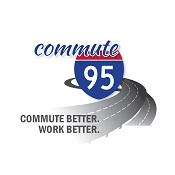
Adults have gotten the message that it’s safer for kids to ride in the back seat properly restrained, but when it comes to their own safety, there is a common misperception that buckling up is optional. Among adults who admit to not always using safety belts in the back seat, 4 out of 5 surveyed by the Insurance Institute for Highway Safety say short trips or traveling by taxi or ride-hailing service are times they don’t bother to use the belt.
The new survey reveals that many rear-seat passengers don’t think belts are necessary because they perceive the back seat to be safer than the front. This shows a clear misunderstanding about why belts are important, no matter where a person sits in a vehicle.
Before the majority of Americans got into the habit of buckling up, the back seat was the safest place to sit, and the center rear seat was the safest place of all in 1960s-70s vehicles. In recent decades, high levels of restraint use and the advent of belt crash tensioners, airbags and crashworthy vehicle designs have narrowed the safety advantages of riding in the rear seat for teens and adults.
While driver and front passenger belt use has been extensively studied, there is not a lot of research on why rear-seat passengers don’t buckle up. Prior IIHS surveys of belt use among adults focused on their belt-use habits in general, but not specifically belt use in the rear seat. The latest study fills this gap.
IIHS surveyed adults 18 and older by cellphone and landline between June and August 2016. Of the 1,172 respondents who said they had ridden in the back seat of a vehicle during the preceding six months, 72 percent said they always use their belt in the back seat, while 91 percent said they always use their belt when seated in front. This is in line with the 2015 nationwide observed belt use of 75 percent for adult rear-seat occupants and 89 percent for drivers and front-seat passengers.
Although safety belts are proven to save lives, more than half of the people who die in passenger vehicle crashes in the U.S. each year are unbelted. One person’s decision not to buckle up can have consequences for other people riding with them.
To view the full release for this report go HERE.





